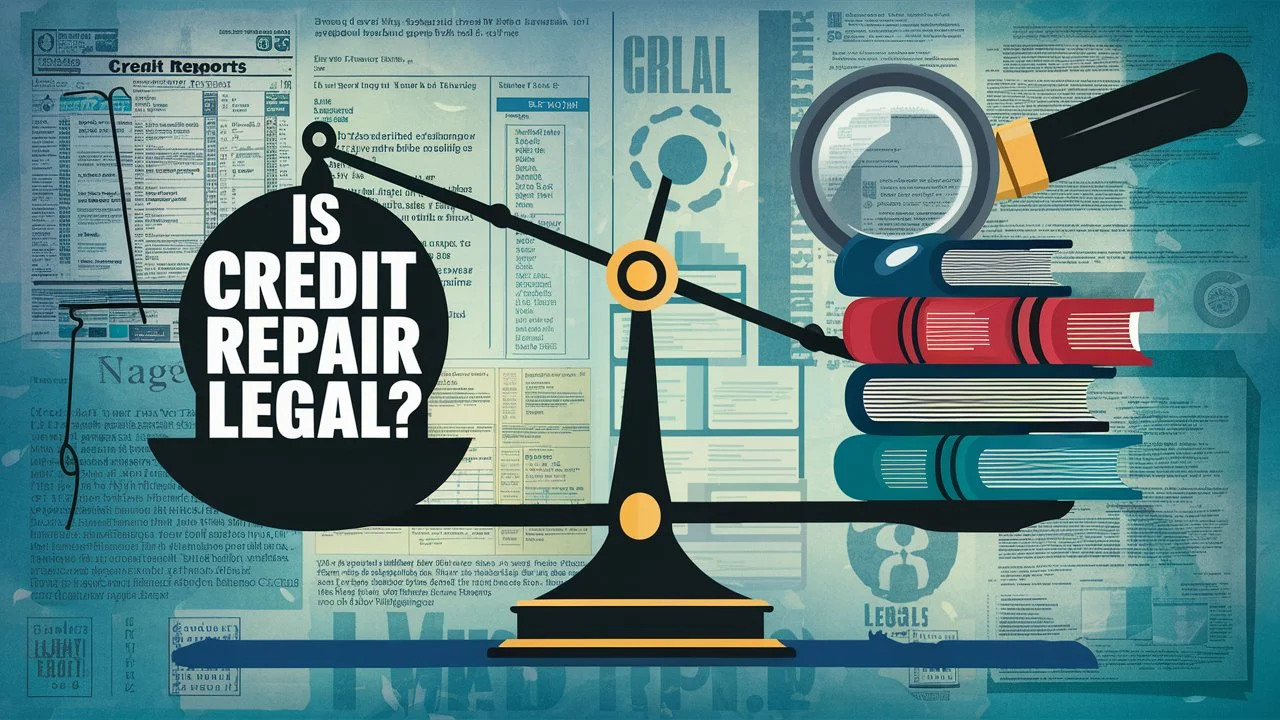Is Credit Repair Legal?

ICredit repair is the act of having certain undesirable entries deleted from your credit report in a bid to boost your score. Some of the possible negative items that can be reported are payments made after 30 days, collection accounts, bankruptcies, and foreclosures. Whenever an individual has poor credit and is struggling to get loans, mortgages, credit cards, or any other form of credit, he or she may turn to credit repair services.
Some of the credit repair methods and approaches can be employed to try to get the negative items deleted from your report or dispute the information contained in it. Common credit repair approaches include.
- Goodwill letters are when you write to your creditors and request them to remove negative items out of goodwill. This depends on the creditors’ willingness to remove negative marks voluntarily.
- Pay-for-delete – negotiating to repay the debt in exchange for the agency deleting the account from your credit report. However, this is technically unlawful according to the Credit Repair Organizations Act.
- Disputing – This is the process of reporting issues to the credit bureaus disputing the accuracy or existence of negative entries. The credit bureaus then have thirty days to respond and verify the item.
- Sue creditors and collection agencies legally – One of the ways of having the negative items deleted from the credit report. This would need to be accomplished by proving that the information is somehow false, unreliable, or obsolete.
However, if the negative items are incorrect or old, credit repair can assist you in deleting them; some credit repair methods twist or completely ignore the rules provided by the Credit Repair Organizations Act. Is credit repair legal in general?
What is legal according to the Credit Repair Organization Act or CROA?
The Credit Repair Organizations Act, also known as CROA, is a federal legislation enacted in 1996 that governs credit repair organizations. CROA was formed to guard consumers against credit repair service scams, falsified adverts, and abusive practices following an increase in credit repair scams that claimed to “erase bad credit. ”
Under CROA, credit repair organizations cannot.
- To be able to collect fees for credit repair, one must charge clients before they even get a chance to receive credit repair services.
- Provide misleading or fake information about the services they will deliver
- Encourage customers to lie in credit applications or tax return forms.
- Plead that they can delete all or nearly all the negative items in a credit report (even though it is correct and factual).
- Suggest that customers get a new life profile or have separate credit reports for masking bad credit records.
The customers also have the right to cancel credit repair contracts within 3 business days without any charges or penalties, according to CROA. In summary, the law targets consumers who are involved or planning to get involved in the credit repair of any unfavorable entries on their credit reports.
Why Some Credit Repair Strategies Are Illegal
Some common credit repair techniques directly violate the Credit Repair Organizations Act.
- Pay-for-Delete Agreements – It is unlawful under CROA to pay a collection agency to delete an account. Some of the things consumers can do themselves include paying for deletion, although credit repair firms are prohibited from advising or engaging in this practice.
- Contesting Accurate Information – Contesting and trying to delete credit report entries that contain information that can be verified as true violates CROA regulations. If properly reported, credit repair companies cannot assure consumers they will obtain all adverse information removed from the credit report. Customers also have the right to challenge any inaccurate, unverified, or outdated information on their own under the FCRA dispute mechanism.
- Creating Fake Credit Identities - Telling customers to get an Employer Identification Number from the IRS to open new credit files is unlawful. This is considered credit fraud to ensure that one does not reveal bad credit ratings to the credit reporting agencies.
In conclusion, while the law allows consumers to challenge the accuracy of the reported information without charge through the credit bureaus, credit repair firms cannot guarantee the deletion of accurate information. They also cannot participate in some practices like pay-and-delete or posing as different people. While there are many legal credit repair strategies, consumers need to note that any company that requires them to manipulate or ignore credit reporting standards is illegitimate.
Ready to boost your credit score? Call +1 888-804-0104 now for the best credit repair services near you! Our expert team is here to help you achieve financial freedom and improve your credit. Don't wait—get started today!



